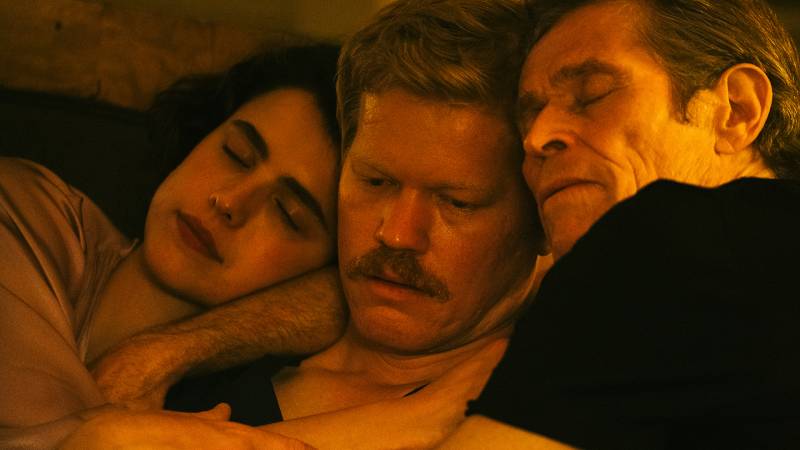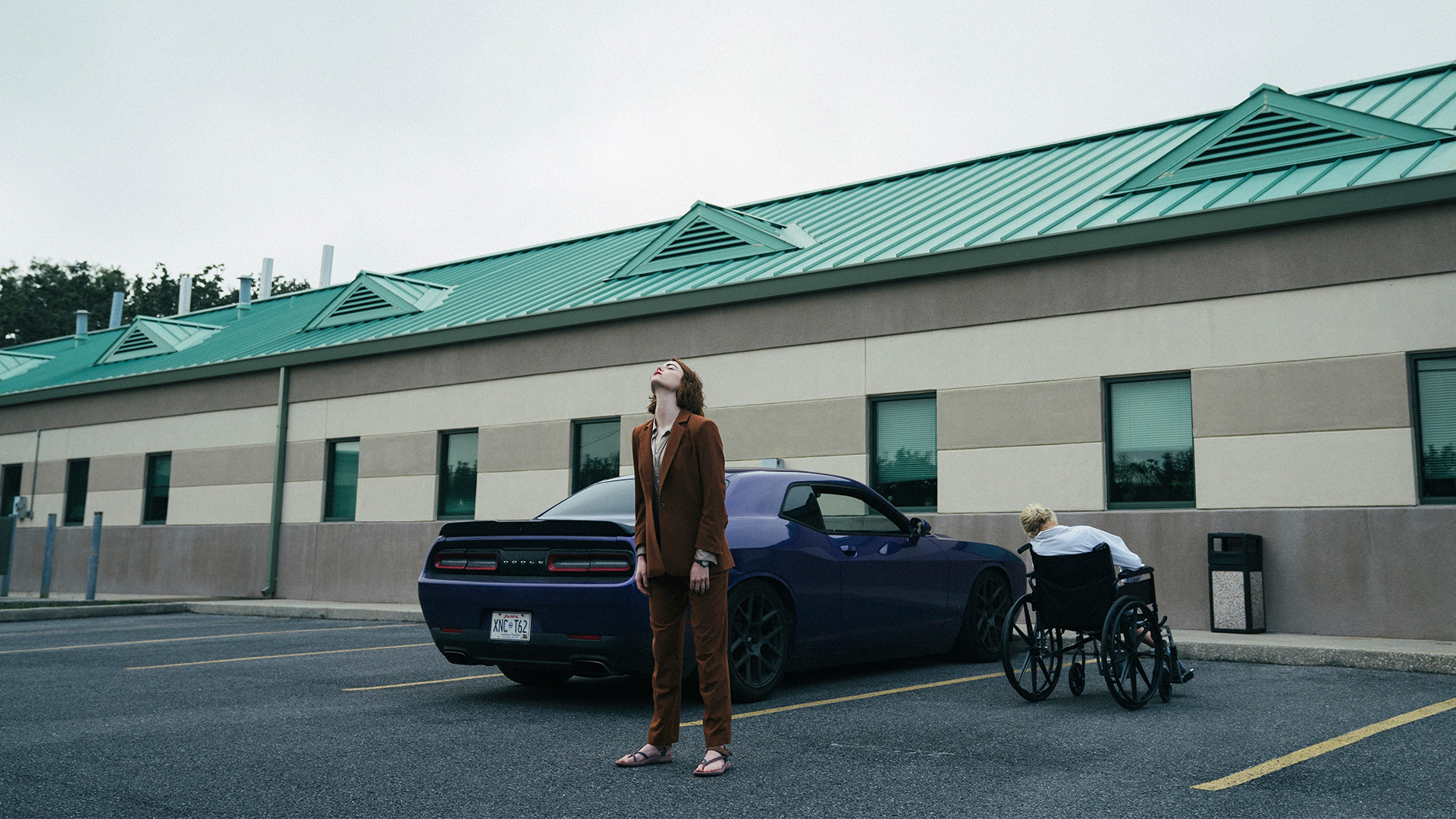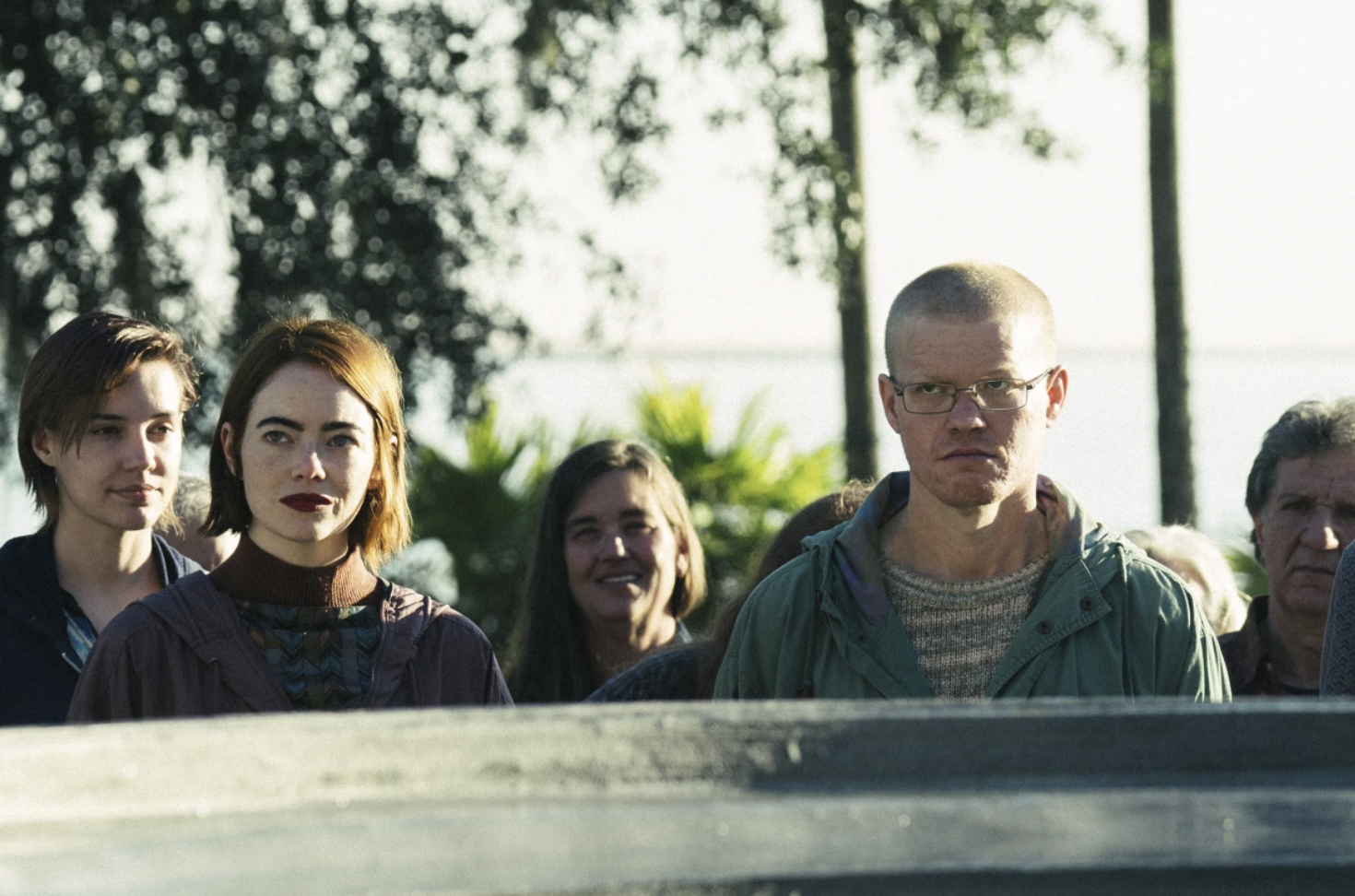No one would mistake one of Francis Bacon’s triptychs for a dose of painterly realism. Three Studies for a Crucifixion is a portrait of a soul, or souls, in distress. The series of contorted bodies dripping with intestinal gore are recognizable as human artifacts — the exhausted aftermath of lives undone by an array of physical and psychological torments.
In Yorgos Lanthimos’ Kinds of Kindness, the director has made his own harrowing triptych: a starched, unblinking look at a variety of souls pressed together and blessed with the capacity to cause harm and induce grief. When Annie Lennox starts singing “Sweet Dreams (Are Made of This)” over the opening sequence, Lanthimos announces the movie’s theme with characteristic bluntness. Everybody’s looking for someone to use and abuse — or wants to be used and abused.
In three distinct segments, each with its own subtitle, Lanthimos foregrounds abusers with malevolent or sadistic imaginations. Their victims are both willing and unwilling. These roles are unfixed: the seven main actors reappear in each storyline as different characters, swapping power dynamics.

While many films structure their narrative arcs around a struggle between good and evil, Lanthimos begins Kinds of Kindness, as he does most of his films, after goodness has already surrendered. His characters have been bled dry of pure intentions. He builds an unbearable amount of tension in long takes, just to see how bad things can get. The body, and the spirit housed within it, will not triumph. Lanthimos is there to zoom in on his characters’ parallel states of decay.
In the first segment, Robert (Jesse Plemons) deliberately crashes his SUV into another car. The next day at work, we meet Robert’s employer Raymond (Willem Dafoe), their conversation a brittle confrontation between supplicant and omnipotent master. For a decade, Raymond has provided Robert with a written list of instructions that dictate his daily life, including what food he eats and when he can have sex with his wife Sarah (Hong Chau).




